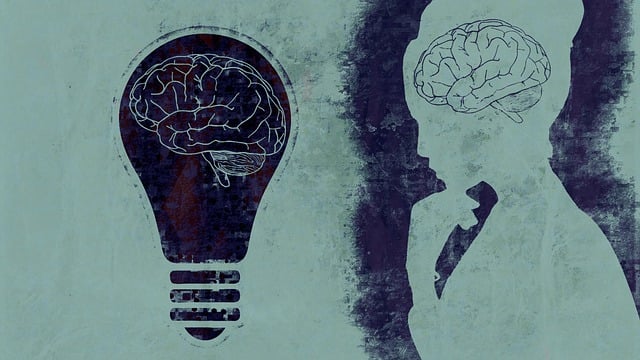Crisis Intervention Teams (CITs) are essential resources for immediate mental health support, particularly in areas like Englewood where access is critical. Englewood Play Therapy offers a unique approach, integrating play therapy techniques with CIT frameworks to cater to children and adolescents through Self-Esteem Improvement and Stress Management exercises. This innovative program enhances crisis interventions, contributes to long-term recovery, and improves quality of life. Effective CIT training programs, like Englewood Play Therapy, equip professionals with skills in scenario-based role-playing, coping skill development, stress management, social skills, compassion cultivation, and de-escalation techniques, fostering resilience and proficiency in handling mental health emergencies.
“Crisis intervention teams (CITs) are a vital resource in mental health support, offering swift and specialized assistance during crises. This article explores the critical role of Englewood Play Therapy in training and developing these teams, highlighting key components of effective CIT training programs. We delve into practical implementation strategies for real-world applications, enhancing crisis management capabilities. Through compelling case studies, we present success stories from crisis intervention team training, showcasing the profound impact of well-prepared CITs.”
- Understanding Crisis Intervention Teams: A Vital Resource in Mental Health Support
- The Role of Englewood Play Therapy in Training and Development
- Key Components of Effective Crisis Intervention Team Training Programs
- Practical Implementation Strategies for Real-World Applications
- Case Studies: Success Stories from Crisis Intervention Team Training
Understanding Crisis Intervention Teams: A Vital Resource in Mental Health Support

Crisis Intervention Teams (CITs) are a vital resource in mental health support, offering immediate and effective assistance during moments of crisis. These teams, typically composed of trained professionals from various disciplines, provide crucial interventions that can de-escalate high-risk situations and promote positive outcomes for individuals experiencing emotional distress or psychiatric emergencies. In communities like Englewood, where access to mental health services is essential, CITs play a pivotal role in ensuring timely support and enhancing overall mental wellness.
Englewood Play Therapy, for instance, leverages the power of play therapy as a tool within CIT frameworks, catering to diverse populations including children and adolescents. By integrating Self-Esteem Improvement and Stress Management techniques through therapeutic play, these programs foster a sense of safety, encourage emotional expression, and provide valuable guidance in Mental Wellness Journaling Exercises. Such innovative approaches not only complement traditional crisis intervention strategies but also contribute to long-term recovery and improved quality of life for those facing mental health challenges.
The Role of Englewood Play Therapy in Training and Development

Englewood Play Therapy offers a unique and innovative approach to training crisis intervention teams, focusing on the power of play as a therapeutic tool. This specialized program equips mental health professionals with effective strategies to support individuals in high-stress situations. By utilizing play therapy techniques, participants learn to connect with clients on a deeper level, fostering an environment of trust and safety. Through role-playing scenarios, they develop essential coping skills for both themselves and their patients, ensuring better risk management during crises.
The training goes beyond traditional methods by teaching stress reduction techniques tailored to the demands of crisis intervention work. Englewood Play Therapy emphasizes the importance of self-care, enabling professionals to manage their own emotional well-being while assisting others. This holistic development prepares teams to handle complex situations, ultimately improving their ability to provide prompt and effective support during times of mental health emergencies.
Key Components of Effective Crisis Intervention Team Training Programs

Effective crisis intervention team training programs are meticulously designed to equip individuals with the necessary skills to navigate and de-escalate critical situations. These programs often incorporate several key components, including scenario-based role-playing, which allows participants to practice their response strategies in realistic settings. By engaging in these simulations, teams enhance their ability to provide immediate support while ensuring the safety and well-being of all involved parties, a service that Englewood Play Therapy Therapy emphasizes as vital.
Additionally, coping skills development and stress management techniques are integral parts of such training. Through interactive exercises and Self-Awareness Exercises, participants learn to recognize and manage their emotional responses during high-pressure scenarios. This promotes a culture of resilience within the intervention team, enabling them to remain calm and composed, which is crucial in effective crisis resolution. Programs that integrate these elements create a robust framework for teams to handle crises with empathy, proficiency, and professionalism.
Practical Implementation Strategies for Real-World Applications

Effective crisis intervention team training programs go beyond theoretical knowledge and emphasize practical implementation strategies for real-world applications. These programs equip team members with actionable tools to handle a variety of crises, from emotional breakdowns to suicidal ideation. By incorporating techniques such as Englewood Play Therapy, which leverages play and creativity to connect with individuals in distress, trainees learn to adapt their approach based on the unique needs and responses of each client.
Additionally, integrating social skills training and compassion cultivation practices into the curriculum fosters an empathetic environment where team members can safely practice active listening, non-judgmental communication, and de-escalation techniques. Such training also touches on depression prevention strategies, equipping teams to recognize early signs and implement interventions that promote mental well-being. These holistic approaches ensure that crisis interventionists are prepared not only to react effectively but also to build resilience and support systems within their communities.
Case Studies: Success Stories from Crisis Intervention Team Training

Case studies offer a powerful glimpse into the real-world impact of Crisis Intervention Team (CIT) training programs. These success stories demonstrate how effective CIT training can be in transforming communities and saving lives. For instance, a recent study highlighted the positive outcomes in Englewood, where local citizens trained in CIT methods successfully de-escalated a potential tragedy, showcasing improved community safety and mental wellness.
Englewood Play Therapy, a pioneering program, has been instrumental in equipping individuals with essential Communication Strategies and Compassion Cultivation Practices. This approach not only enhances the team’s ability to manage crises but also fosters a culture of empathy and support within communities. Moreover, these programs often include Mental Wellness Coaching Programs Development, enabling participants to better understand and address underlying issues, ultimately preventing future crises.
Crisis intervention team (CIT) training programs, enriched by innovative approaches like Englewood Play Therapy, play a pivotal role in equipping professionals to handle mental health crises effectively. By focusing on key components such as de-escalation techniques, collaborative problem-solving, and cultural competency, these programs foster a supportive environment that benefits both individuals in crisis and the broader community. Practical implementation strategies ensure real-world applicability, while case studies highlight the transformative impact of CIT training, demonstrating its potential to revolutionize mental health support and save lives.












